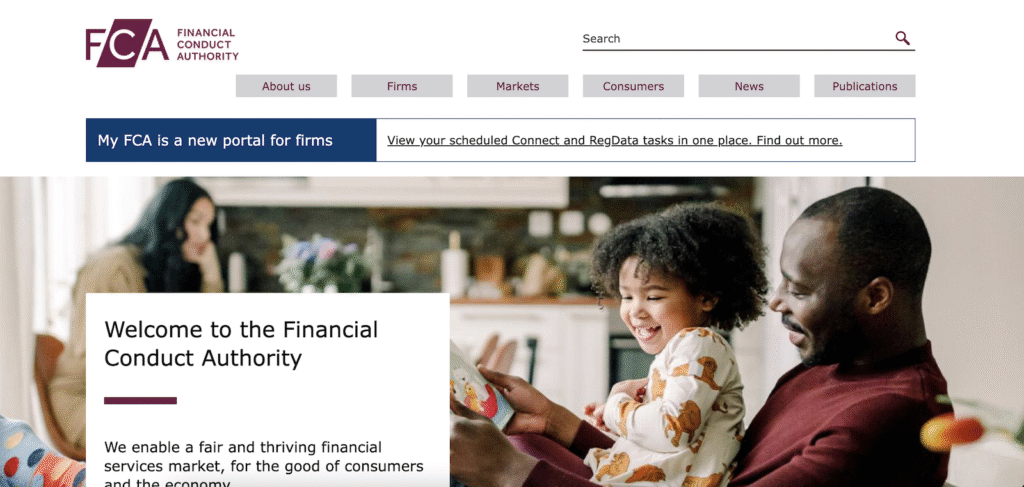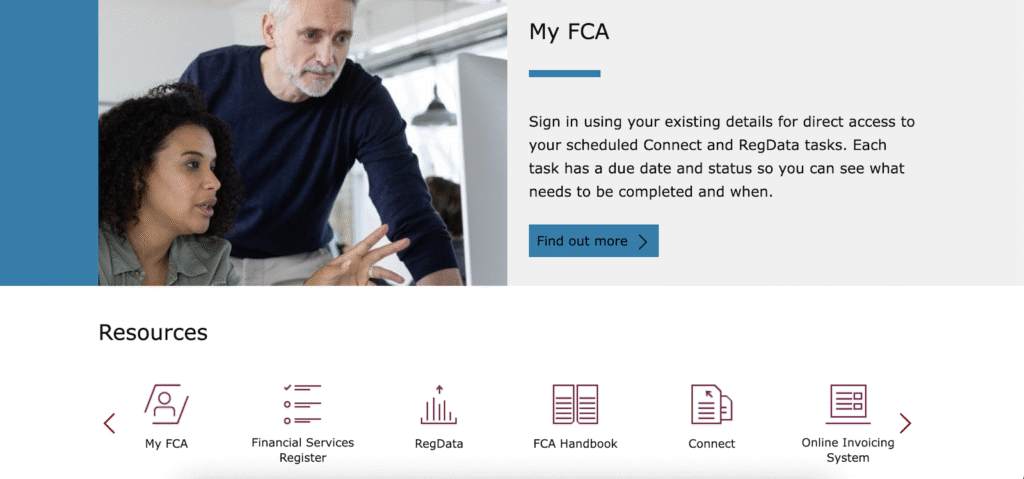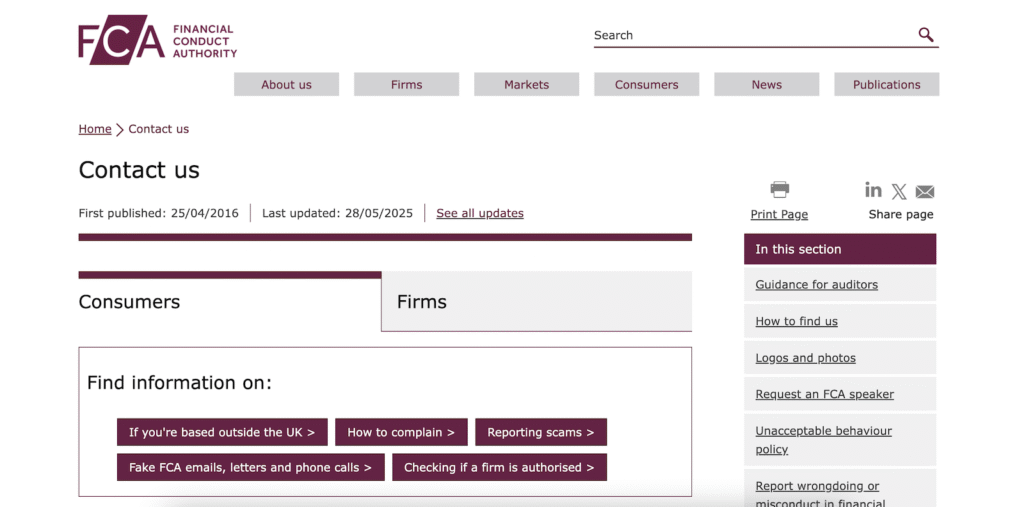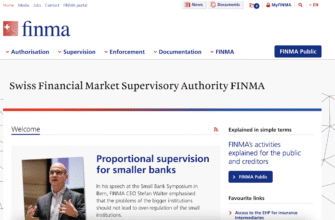The Financial Conduct Authority (FCA) stands as a cornerstone in the UK’s financial regulatory landscape. Established in 2013, the FCA’s primary mission is to ensure that financial markets operate in a way that is fair, transparent, and beneficial to consumers. This article delves into the FCA’s functions, recent initiatives, and the impact of its regulations on both consumers and financial firms.

- What Is the Financial Conduct Authority?
- Key Responsibilities of the FCA
- Financial Conduct Authority: Regulatory Framework and Powers
- Rulemaking
- Supervision
- Enforcement
- Prosecution
- Financial Conduct Authority: Recent Developments and Initiatives
- Consumer Duty
- Crackdown on ‘Finfluencers’
- Pisces Trading Platform
- Financial Conduct Authority: Impact on Financial Firms
- Compliance Costs
- Senior Managers and Certification Regime (SM&CR)
- Consumer Protection and Enforcement
- Enforcement Cases
- Mis-Selling of Car Finance
- Conclusion on Financial Conduct Authority
What Is the Financial Conduct Authority?
The FCA is an independent regulatory body in the United Kingdom, operating with the aim of protecting consumers, enhancing market integrity, and promoting competition within the financial services industry. Unlike its predecessor, the Financial Services Authority (FSA), the FCA has a more focused approach, concentrating on the conduct of financial services firms rather than their prudential regulation.
Key Responsibilities of the FCA
- Consumer Protection: Ensuring that consumers are provided with appropriate products and services and are protected from harm.
- Market Integrity: Maintaining confidence in the financial system by ensuring that markets operate in a way that is fair and effective.
- Competition: Promoting effective competition in the interests of consumers.
- Regulation of Firms: Overseeing the conduct of financial services firms, including banks, insurance companies, and investment firms.
Financial Conduct Authority: Regulatory Framework and Powers
The FCA operates within a robust regulatory framework that provides it with significant powers to enforce compliance and take action against misconduct.
Rulemaking
The FCA sets rules and standards that firms must follow. These rules cover various aspects, from how firms should handle complaints to the level of capital they must hold.
Supervision
The FCA supervises firms to ensure they comply with its rules. This involves regular reviews, assessments, and investigations to monitor firms’ operations and financial health.
Enforcement
If firms fail to comply with FCA regulations, the authority has the power to take enforcement action. This can include fines, sanctions, or, in severe cases, withdrawing a firm’s license to operate.
Prosecution
In cases involving serious misconduct, such as fraud or market abuse, the FCA can pursue criminal prosecutions. It works closely with other law enforcement agencies, such as the Serious Fraud Office (SFO), to bring offenders to justice.
Financial Conduct Authority: Recent Developments and Initiatives
The FCA continually adapts its strategies to address emerging challenges in the financial sector.
Consumer Duty
Introduced in 2023, the Consumer Duty is a significant regulatory initiative requiring firms to act in the best interests of their customers. It aims to ensure that firms deliver good outcomes for retail customers and provide products and services that are fit for purpose.
Crackdown on ‘Finfluencers’
The FCA has intensified efforts to combat financial influencers (‘finfluencers’) who promote misleading financial products on social media platforms. This includes issuing cease and desist orders and collaborating with platforms to remove harmful content.
Pisces Trading Platform
The FCA has approved the launch of the Pisces platform, designed to facilitate the trading of private company shares. This initiative aims to bridge the gap between private and public markets, providing greater access for investors and liquidity options for early backers and employees.

Financial Conduct Authority: Impact on Financial Firms
Financial firms operating in the UK must adhere to FCA regulations, which can influence their operations and strategies.
Compliance Costs
Some firms have expressed concerns about the compliance costs associated with FCA regulations. A report by the House of Lords financial services regulation committee criticized UK financial regulators, including the FCA, for imposing excessive and duplicative compliance burdens on firms, potentially hindering economic and sectoral growth.
Senior Managers and Certification Regime (SM&CR)
The SM&CR holds individuals within firms accountable for their conduct and competence. It aims to reduce consumer harm and strengthen market integrity by ensuring that senior managers take responsibility for their firm’s activities.
Consumer Protection and Enforcement
The FCA’s enforcement actions play a crucial role in maintaining trust in the financial system.
Enforcement Cases
In the 2022/23 financial year, the FCA opened 100 enforcement cases and closed 107. These cases covered a range of issues, including unauthorised business activities, misleading statements, market manipulation, and insider dealing.
Mis-Selling of Car Finance
The FCA has been involved in addressing the mis-selling of Personal Contract Purchase (PCP) car finance agreements. Between 2007 and 2021, many car buyers were mis-sold PCP finance due to discretionary commission arrangements. The FCA banned these arrangements in 2021, and a significant court judgment expected in 2025 may lead to billions in payouts from banks and lenders.

Conclusion on Financial Conduct Authority
The Financial Conduct Authority plays a pivotal role in shaping the UK’s financial services landscape. Through its regulatory framework, enforcement actions, and proactive initiatives, the FCA strives to create a financial environment that is fair, transparent, and beneficial to consumers. While challenges remain, particularly concerning compliance costs for firms, the FCA’s ongoing efforts aim to address these issues and adapt to the evolving financial sector.
For more information or to check if a firm is authorised, visit the official FCA website: https://www.fca.org.uk/







